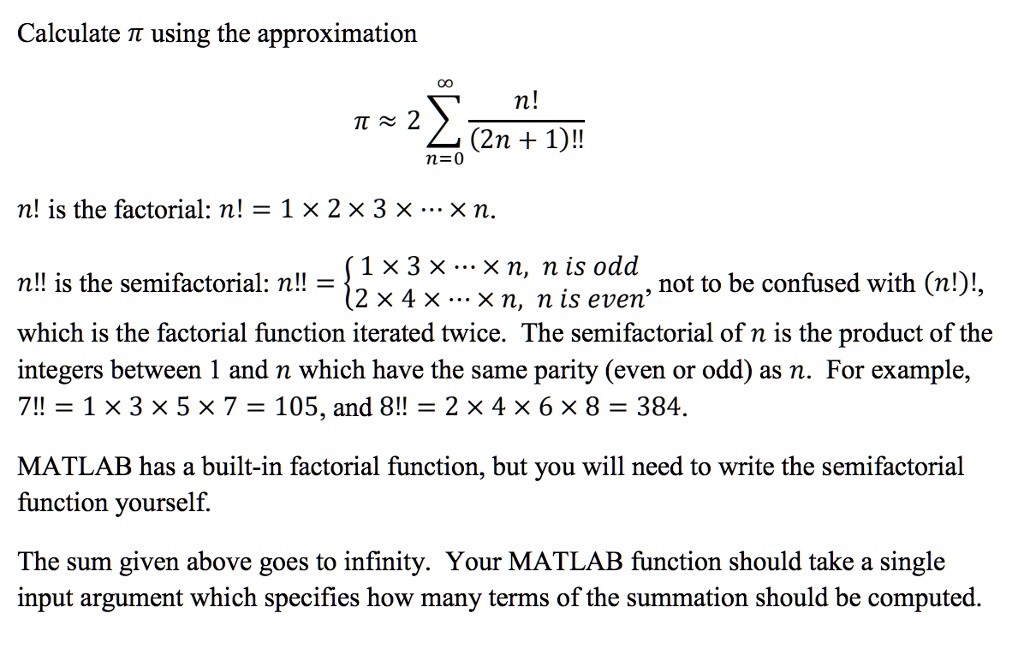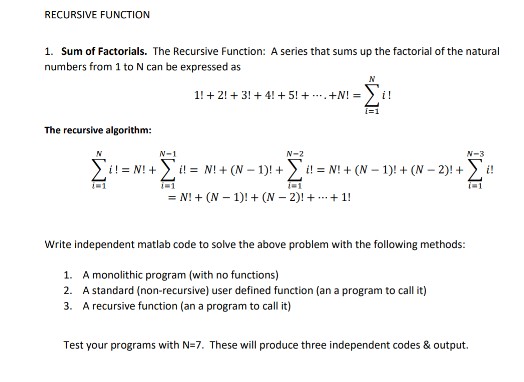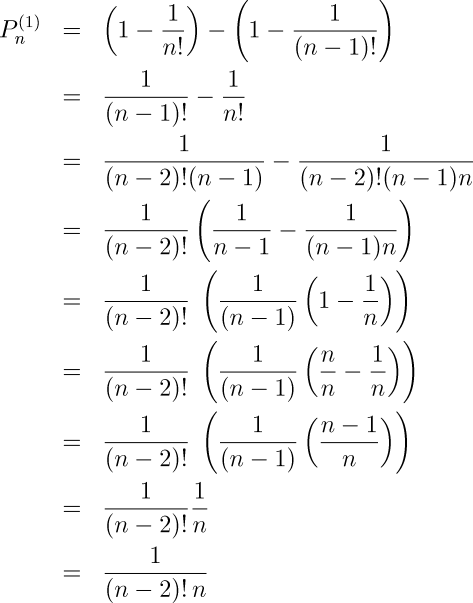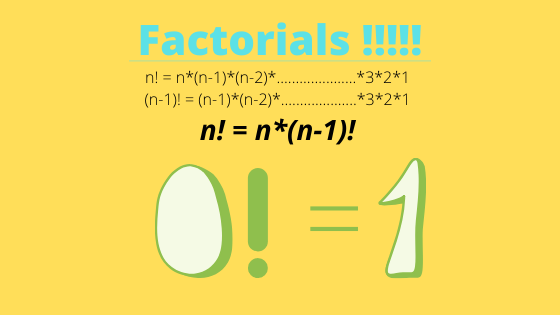
python - How do I write a function that finds the sum of factorial of even numbers? - Stack Overflow

SOLVED: Calculate It using the approximation n! IT (2n + 1)!! n=0 n! is the factorial: n! = 1 x 2 x 3 x ... x n. (1 x 3 x ...

MathType - The n-th alternating factorial is the alternating sum of the first n factorials. In 1999 it was proven that only a finite number of them are primes and that they

Prove that e is equal to the summation of (1/n!), n is from 0 to infinity | Prove that e is equal to the summation of (1/n!), n is from 0 to

Series convergence of 1/n! direct comparison -- difficult proof! Direct comparison sum(1/n!) proof. - YouTube

calculus - Testing the convergence of $\sum\limits_{n=1}^ \infty \frac{n!\, \pi^n}{e^{n^2}}$ - Mathematics Stack Exchange
















